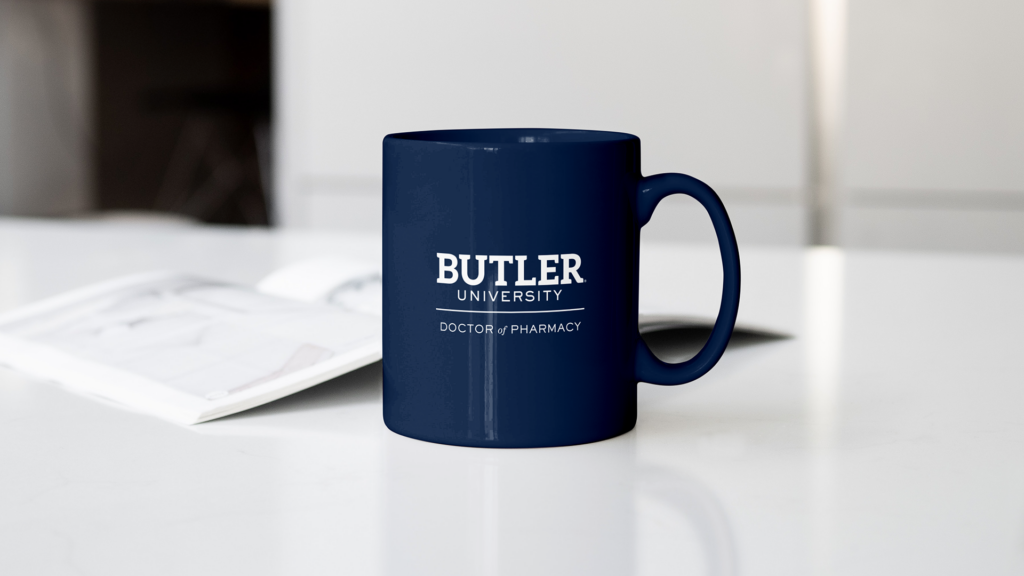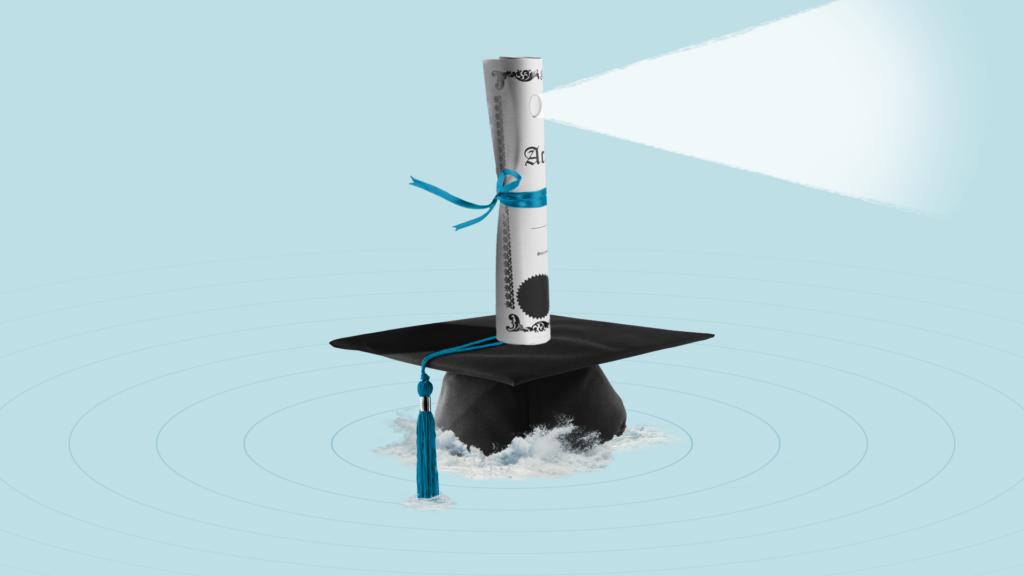- Part I: Thought Leadership Series: Learning From Outside Of Higher Education To Build An Agile Campus
- Part II: Thought Leadership Series: Learning From Outside Of Higher Education To Build An Agile Campus
- Part III: Thought Leadership Series: Learning From Outside Of Higher Education To Build An Agile Campus
- Part IV: Lessons from Outside Higher Ed: International Lessons from Apple in China
Thought Leadership Series Overview:
Learning From Outside Of Higher Education To Build An Agile Campus
The landscape of higher education is undergoing a pivotal transformation, one that demands a fresh perspective on how we approach the student experience. Drawing parallels from places outside of higher education and the evolving needs of students, we’re embarking on a journey to explore how institutions can adopt and adapt these lessons. This series will delve into the innovative strategies of leading retail, healthcare, and other institutions that could enable a more agile campus, and help shape the future role of the campus in an increasingly online world.
For part four of our conversation with Dr. Doug Guthrie, Elliot Felix, and Dr. Scott Bass, we go beyond the borders of the United States and look to Dr. Guthrie’s experience driving growth for Apple in China to see what lessons we can glean from this context.
Takeaway 14: The customer-centric mindset so palpable within a retail store pervades every aspect of Apple’s DNA.
“One of the things that we tried to do inside of Apple University was teach the people internally that everyone is customer-facing even if you’re an operations person and you’re making phones. You may think those people are buying phones that are so far from me, but we have to build an organizational culture in which everybody’s thinking about the customer experience. Now we can stretch what we might think customer experience is. When we think about customers, we think about the people who are walking into a store, having the retail experience at this amazing store buying a phone and walking home with it. But there are also customers and partners in the supply chain. When I left, Apple worked with 1600 Chinese suppliers. In some sense, we were partners. But we were each other’s customers because they were making components for us that we were then shipped to Foxconn [to assemble the phones]. How you treat people and how you treat the customer experience is very important across the board. It’s not just the people walking away with phones, but it’s the people who are dealing with you every moment of every day. They are customers too. Then you start to think about how to build an effective organizational culture in which everybody has a forward-facing orientation towards what’s good for how we are in the world. If we want to leave the world better than we found it, what does that mean?”
Takeaway 15: This mindset needed to extend beyond the gates of campus into the local community, proactively engaging municipal government and other officials as customers as well.
“An Apple store is not just a thing on a block. It’s like a major, major construction. This got me more directly involved with them very quickly because if you want to build a store like that in China, you’re dealing with your municipal government immediately, which requires someone who knows Chinese politics. Sometimes municipal governments and provinces are your customers. So what you’re doing in your factories matters. So you need to have good relations with them.”
“When I was brought to Apple in 2014, Apple was doing well in China. They had been in China since 2001. Then Xi Jinping came to power. March 5th of every year is a day that China calls Consumer Day. Consumer Day was set up by Deng Xiaoping in the 1980s to say “Yes, we’re going to embrace capitalism, but the government still cares about you, the consumer, and so any corporations that are behaving badly, we’re going to call them out on March 5th. In 2014, Apple was going gangbusters in China, pouring more money into China than any other corporation, and developing a bigger customer base. It’s Apple’s second-largest market.”
“However, they were “called out” on Consumer Day, after Xi Jinping’s inauguration. The call was “You’re bad. We don’t like you.” The mistake that Apple had been making was thinking that consumers were just the people buying phones and the people were working within the supply chain. Apple forgot that their consumers are also the local governments and the central government. These are our customers too. So Apple was called out on Consumer Day.”
Takeaway 16: The relationships between these critical customers need to be cultivated regularly and supported, or risk having negative consequences.
“About a year after I got there, there was a study that was done by SOASAC, which is the State-Owned Asset Supervision and Administration Commission, and the Chinese Academy of Sciences. They are both state-owned entities. They came together to do a study of the corporate social responsibility of all of the foreign companies operating in China. Apple thought it was going to do well because “We are awesome. We leave the world better than we found. It is our environmental principles and our attention to the labor law”. The report wasn’t awesome. Apple got a horrible score. We were ranked 28th out of the corporations. Competitors like Intel and Samsung, and all of the other foreign companies in the electronic sector were far ahead of Apple. People within Apple started calling me asking what happened. I explained that they forgot that your customer, your consumer, is the Chinese government. You may think that because you’re putting money into China and creating jobs makes you good. Instead, you need to be building things and you need to be interacting with the Chinese government. You need to be treating the Mayor of Guangzhou with respect. You need to be making clear that you are here as a partner and here to listen. It was just a fascinating moment where my teaching became a lot about how to think beyond just building these beautiful stores and putting iPhones in people’s hands. What do you think about the relationship with the Mayor of Guangzhou? He is also your customer. He’s your consumer. How are we thinking about him? How are we treating him?”
Bios
Dr. Scott A. Bass is Provost Emeritus and Professor of Public Administration and Policy in the School of Public Affairs at American University (AU). He is the Executive Director of the Center for University Excellence at AU. Since he arrived at AU in 2008, Dr. Bass has focused on strategic planning, diversity, inclusive excellence, strengthening the academic infrastructure, intensifying research productivity, and enhancing the total student experience. Before AU, Dr. Bass was Vice President for Research and Dean of the Graduate School at the University of Maryland Baltimore County (UMBC) where he helped expand research funding and enhanced graduate education. His first faculty appointment was at the University of Massachusetts at Boston where he was the inaugural Director and founder of the Gerontology Institute, the Ph.D. Program in Gerontology, and inaugural Co-editor of the Journal of Aging and Social Policy. He has written or edited 8 books, 27 book chapters, and 54 articles, earned a Fulbright Research Scholarship to Japan, and was a visiting professor at Stanford University in 2004 and 2019. He earned his Ph.D. at the University of Michigan, MA at the University of Michigan, and a BA from the University of Michigan. His most recent book is titled Administratively Adrift: Overcoming Institutional Barriers for College Student Success (Cambridge University Press, 2022).
Dr. Doug Guthrie has spent his career researching, writing, teaching, and advising about two topics: organizational development, where he has focused on issues of leadership, organizational culture, and corporate social responsibility; and the Chinese economic reforms, where he has focused on the intersection of economic and political forces that lead to successful economic development models. Currently, he is a Professor of Global Leadership and Executive Director of China Initiatives at the Thunderbird School of Global Management. He is also Co-Founder and CEO of the virtual thinktank, On Global Leadership (ongloballeadership.com). From 2014 to 19, Guthrie was a Senior Director at Apple, based in Shanghai China, where he led Apple University efforts on leadership and organizational development in China. Before joining Apple, from 2010-14, Guthrie was Dean of the George Washington School of Business, Vice President for University China Operations, and Professor of International Business. Before GW, from 1997-2010, Guthrie held faculty positions at NYU’s Stern School of Business, where he was Professor of Management and Director of custom Executive Education, and NYU’s Faculty of Arts and Sciences, where he was Professor of Sociology and the Founding Director of the University’s Office of Global Education. He has held visiting Professorships at several business schools, including Kellogg, Harvard, INSEAD, Stanford, Columbia, and Emory. Guthrie received an AB in East Asian Languages (Chinese literature) from the University of Chicago and MA & Ph.D. degrees in organizational sociology from the University of California, Berkeley.
Elliot Felix is an author, speaker, and consultant to more than 100 colleges and universities. He is a Partner at Buro Happold where he and the higher ed strategy team – brightspot – create more engaging, more equitable, and more impactful experiences for students by transforming facilities, support services, and technology. He is an accomplished strategist, facilitator, and sense-maker who has advised more than 100 colleges and universities including Arizona State University, Carnegie Mellon University, Georgia Institute of Technology, MIT, NC State University, New York University, Stanford University, the University of California Santa Cruz, the University of Michigan, and the University of Virginia. Elliot is also the author of How to Get the Most Out of College which provides 127 evidence-based tactics for academic, social, and career success in college and beyond. Elliot is a prolific speaker and writer on reimagining higher education and you can find his work in Fast Company, Forbes, and The Chronicle of Higher Education. He received his BS from the University of Virginia and an MA from MIT.



